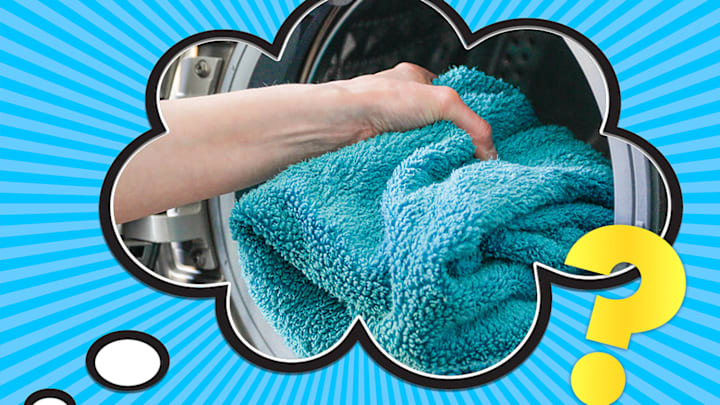You might do the same laundry routine week after week. You might not even question why you’re doing your clothes this way because the end result is always the same: Clean, warm, and fluffy clothes.
But when it comes to why you need certain things, it’s easy to draw a blank. Detergent and fabric softener are self-explanatory (one cleans and the other softens), but what do dryer sheets do? Below, we break down the purpose of these sheets and whether or not they are as bad for your clothes as some sources might suggest.
What do dryer sheets actually do?
Dryer sheets are made from woven synthetic polyester fibers coated in fatty acids or stearic acid and mass-produced in sheets that you can toss into a dryer with your wet laundry.
They’re often scented to leave your clothes feeling soft and smelling fresh, but they were originally made to reduce static from the triboelectric effect, which is when clothes rapidly rub against each other to create static electricity during a dryer cycle.
However, there has been some concern that dryer sheets—which contain quaternary ammonium compounds, the chemicals that make your clothes softer—may make asthma conditions worsen, irritate sensitive skin, and lead to other potentially harmful side effects.
These chemicals are heat-activated to aid in the drying cycle, but they also can coat the dryer itself. And over time, that chemical buildup may lead to air filter blockages, so it is always a good idea to clean those filters regularly as well to keep your dryer in good working condition.
What else can dryer sheets do?
If you’re thinking twice about using dryer sheets in your next load of laundry, then what are you going to do with the new box of Bounce that you just bought at the store?
If you have a smelly pair of shoes or boots, adding a dryer sheet could freshen them up. On the same note, it’s believed that adding a dryer sheet to a garbage receptacle could deodorize your trash.
Some folks even use scented dryer sheets as a type of insect repellent to keep away wasps, yellow jackets, mosquitoes, and gnats. This is thanks to linalool, a naturally occurring terpene alcohol that occurs in certain flowers, as well as beta-citronellol, a chemical compound used in perfumes and found in some scented dryer sheets.
Discover More Fascinating Big Questions:
